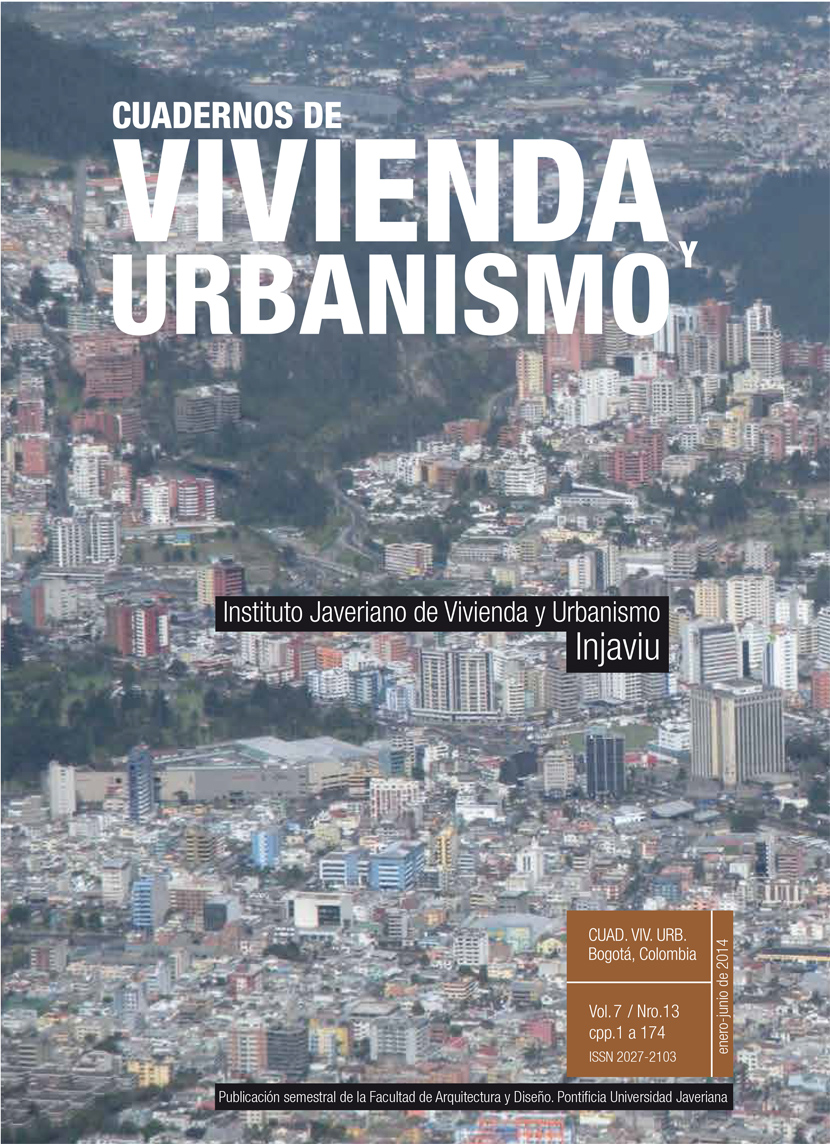Resumo
No ano 1991 Chile pôs fim à ditadura militar e assumiu um Governo democrático, dezoito anos após o último que tinha acontecido nas urnas. Então, o país encontrou-se com sérias carências sociais e, sobretudo, habitacionais, que foram enfrentadas em um tono de elevado acréscimo da receita nacional e com uma política de habitação social focada nas famílias mais pobres. Os resultados foram louvados por diversos organismos internacionais. Contudo, Chile tem-se caracterizado desde então por apresentar uma das distribuições de renda mais desiguais do globo. Por isso, no presente artigo são analisados os resultados da política habitacional chilena entre 1990 e 1998 e consideram-se os diferentes níveis de renda das famílias classificadas em decis de renda. Os resultados põem no debate a necessidade de considerar as desigualdades de renda na análise de políticas.
Esta revista científica se encuentra registrada bajo la licencia Creative Commons Reconocimiento 4.0 Internacional. Por lo tanto, esta obra se puede reproducir, distribuir y comunicar públicamente en formato digital, siempre que se reconozca el nombre de los autores y a la Pontificia Universidad Javeriana. Se permite citar, adaptar, transformar, autoarchivar, republicar y crear a partir del material, para cualquier finalidad (incluso comercial), siempre que se reconozca adecuadamente la autoría, se proporcione un enlace a la obra original y se indique si se han realizado cambios. La Pontificia Universidad Javeriana no retiene los derechos sobre las obras publicadas y los contenidos son responsabilidad exclusiva de los autores, quienes conservan sus derechos morales, intelectuales, de privacidad y publicidad.
El aval sobre la intervención de la obra (revisión, corrección de estilo, traducción, diagramación) y su posterior divulgación se otorga mediante una licencia de uso y no a través de una cesión de derechos, lo que representa que la revista y la Pontificia Universidad Javeriana se eximen de cualquier responsabilidad que se pueda derivar de una mala práctica ética por parte de los autores. En consecuencia de la protección brindada por la licencia de uso, la revista no se encuentra en la obligación de publicar retractaciones o modificar la información ya publicada, a no ser que la errata surja del proceso de gestión editorial. La publicación de contenidos en esta revista no representa regalías para los contribuyentes.


